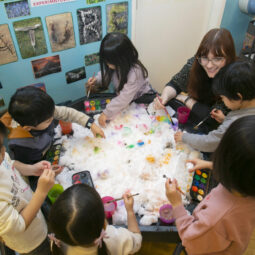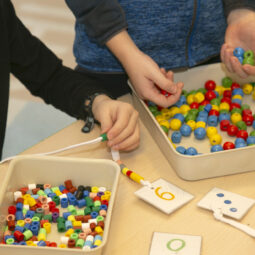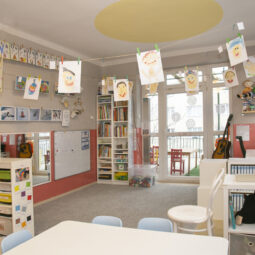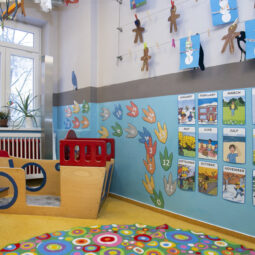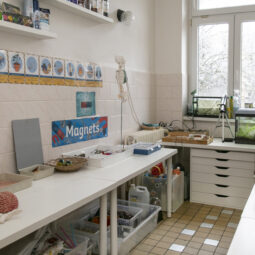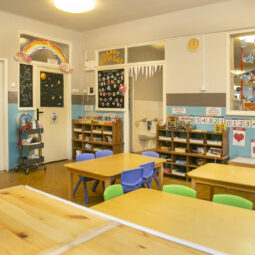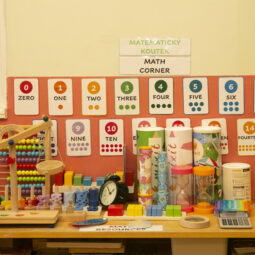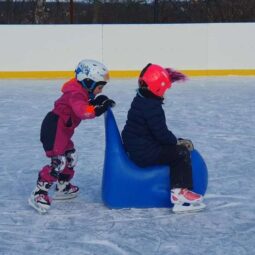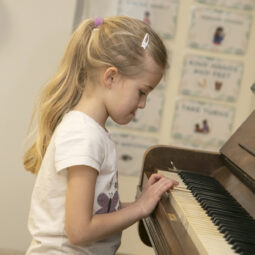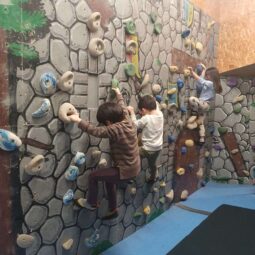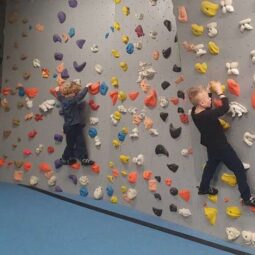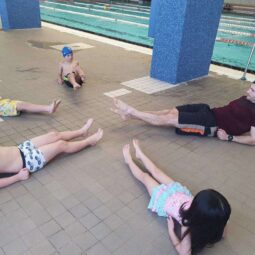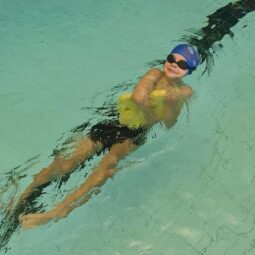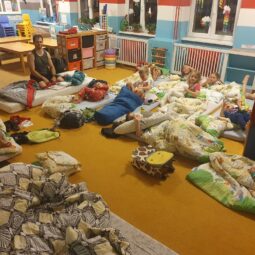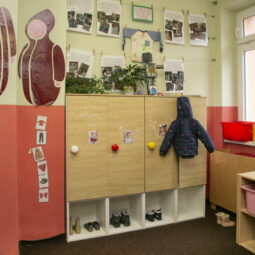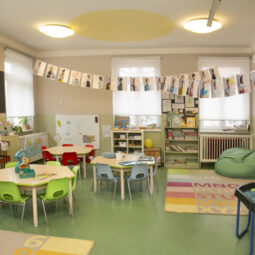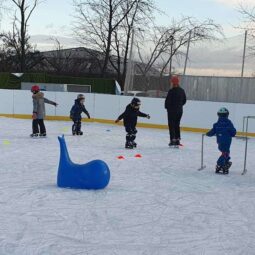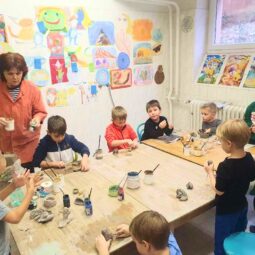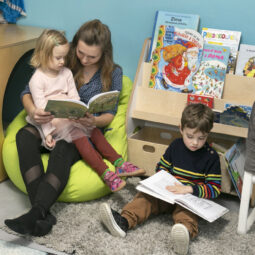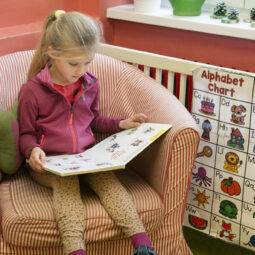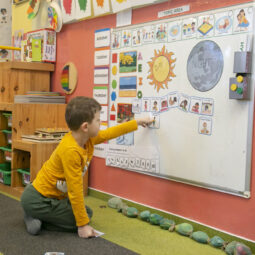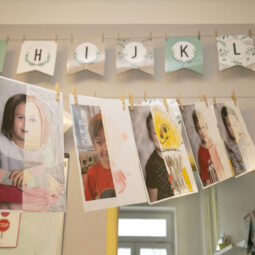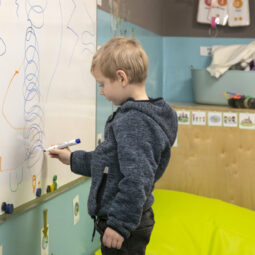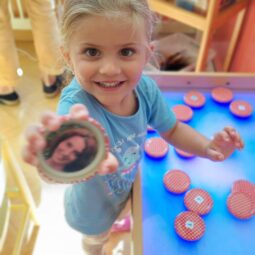Objectives, class structure, results...
Our approach to children
-
Objectives
At Tetty, we provide children with education in Czech and English so that they have the opportunity to make decisions about their future education, whether in the Czech, international or bilingual system. The aim is to give them excellent prospects for admission to different school systems.
-
Results
Children from TETTY who move on to primary school have excellent results in both English and Czech. They are also successful in challenging entrance exams, which we consider to be a confirmation of the effectiveness of our approach.
-
Structure
Children usually join us around the age of 2 and we accompany them until they are 6 or 7 years old. At TETTY, we have three main classes with programs tailored to the children's learning levels.
-
Gifted children
At TETTY we have experience in working with gifted children and their families. The fact that we have a significantly higher proportion of gifted children compared to the general population only confirms this.
-
Intrinsic motivation
Instead of rewarding (with sweets, etc.), we encourage children to self-evaluate. Teachers evaluate children by describing what the child has done and how it has benefited him/herself or the team. We motivate children to participate in activities so that they understand what we plan to do and why, what they might enjoy about it and how the activity might benefit them. On the other hand, we avoid encouraging competition and comparing children with each other.
-
Communication with parents
In case of problems, it is important for us to communicate with parents and try to find a solution which is in the child's interest.
-
Conflict resolution
We always try to resolve the situation first by agreeing, negotiating and explaining what others feel and what the consequences are. We also explore the child's need for negative behaviour and, where possible, try to meet that need.
-
Candy-free policy
At Tetty, we consistently avoid rewarding children or giving them sweets. We ask you to do the same - don't bring sweets to the preschool.
A look behind the curtain.
Photo gallery
All information in one place.
Organisation of the school year
Download the PDF with information for the current school year or ask the nursery about it.
What to watch out for?
First days in nursery
-
Mirroring feelings
Children often reflect the feelings of their parents. If you have concerns or feel sadness associated with your child starting kindergarten, it is likely that your child will mirror these feelings. It is therefore important to work on your own emotions first and foremost.
-
Timing
Unless there are compelling reasons for starting nursery immediately, it may be a good idea to wait until you and your child are ready. Do not disrupt attendance immediately after starting as this can be confusing for your child.
-
Preparation
Talk to your child about nursery before their first day. Show them pictures, read books about nursery together, and include them in the preparation so that they have a better idea of what to expect.
-
Structure of the first days
For the first days, a shorter stay in the morning is ideal, gradually lengthening according to the child's needs.
-
Adaptation in TETTY
At TETTY, adaptation is completely individual, responding to the needs of the particular family and child. Adaptation can last from a few days to several weeks.
-
Rest
New environment and activities can be challenging for a child, so they may be more tired than usual. Allow them additional rest if needed.
-
Personal items
We encourage children to bring their favourite toy or item. They can help children feel more at home in a new environment.
-
Communication
In the first few days we will send you individual photos via Twigsee or MMS to share how your child is doing.
-
Leave quickly
Faster handover of your child is often better for adaptation. We can facilitate whatever you need, but in our experience it works best if the child is handed over to the care of the nursery quickly.
-
Older children
Older children may be concerned about returning to preschool after the holidays. It is a good idea to communicate with them about their fears and remind them of food things that awaits them in preschool.
From morning to late afternoon
Timetable of the day in the children's world of TETTY
| Time | Activity |
| 7:30 – 9:00 | Start of the day with assisted play or individual learning. |
| 9:00 | Morning meeting of all children. |
| 9:30 | Break and snack |
| 10:00 – 12:15 | Various activities and games, mostly in the fresh air in the garden. |
| 11:45 – 12:45 | Lunch |
| 13:00 | Some kids leave home. |
| 12:30 – 14:45 | Quiet time to read, rest or sleep. |
| 14:45 | Afternoon snack |
| 15:00 – 17:00 | Interest groups, games and individual activities, outdoor play. At the end of the day children return to their families. |
Class layout and programme
Classes
Each year the classes change their thematic plans according to the needs of the children. The themes are linked in both the Czech and English programmes. For example, Easter is covered more in the Czech programme, while Halloween is covered more in the English programme.
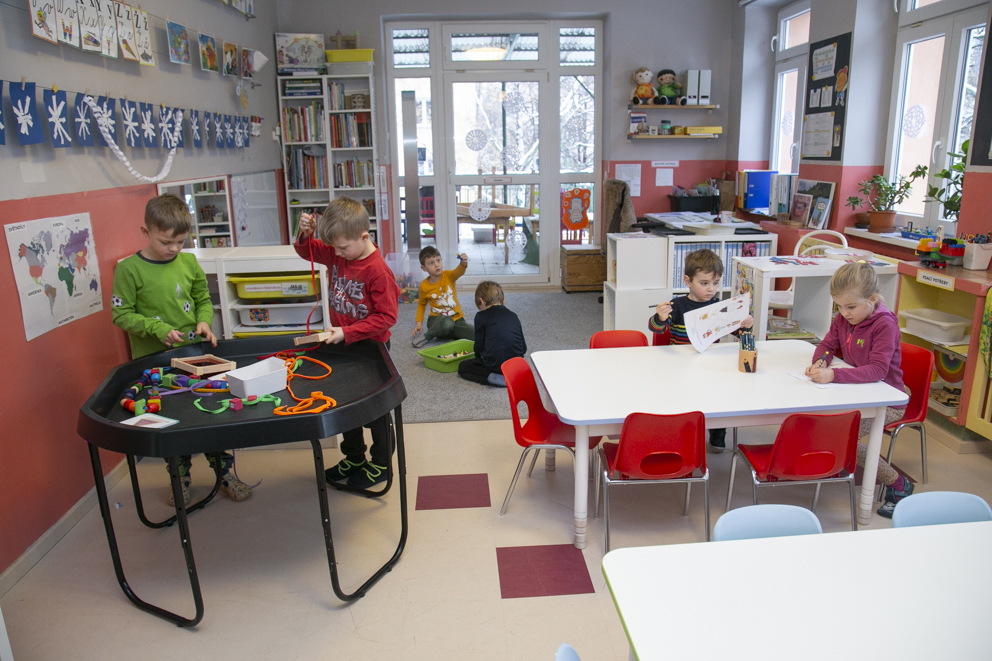
Individual preschool preparation.
Emphasis on speech therapy.
Working with gifted children
Excellent outputs in Czech and English.
book a tourWhales 5 - 5,9/6,9years
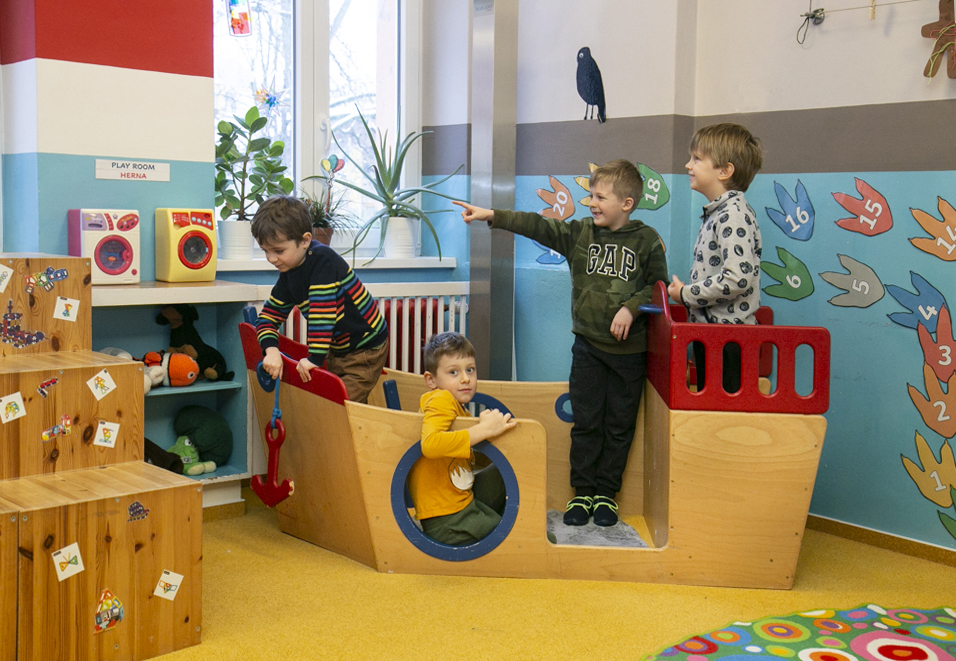
Work in small groups.
Development of the child’s talent and interest areas.
Multicultural environment.
book a tourSharks 4 - 4,9years
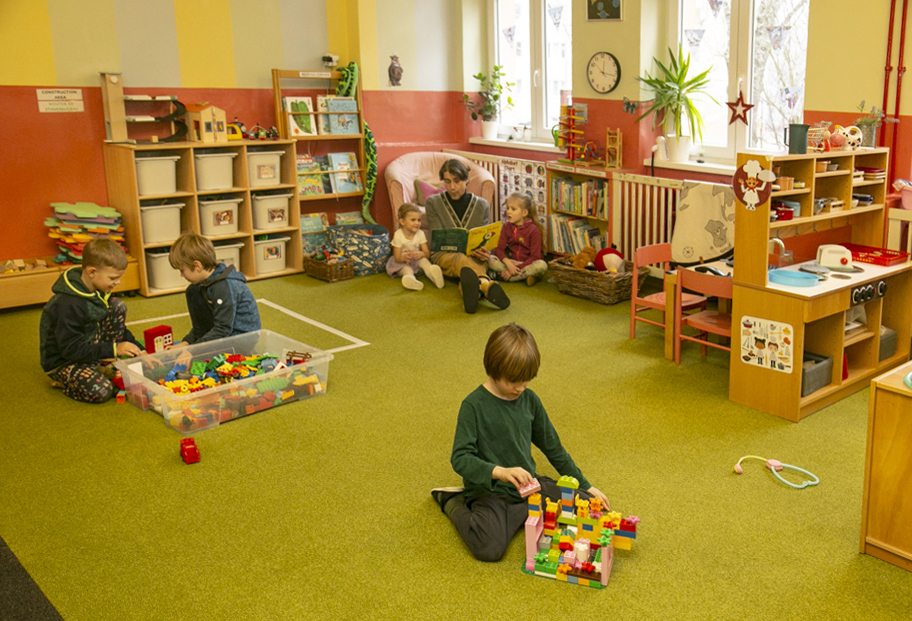
An above-standard number of teachers for the number of children in the class.
Individual adaptation of each child according to his needs.
Developing types of activities.
book a tourDolphins 2,5 - 3,9years







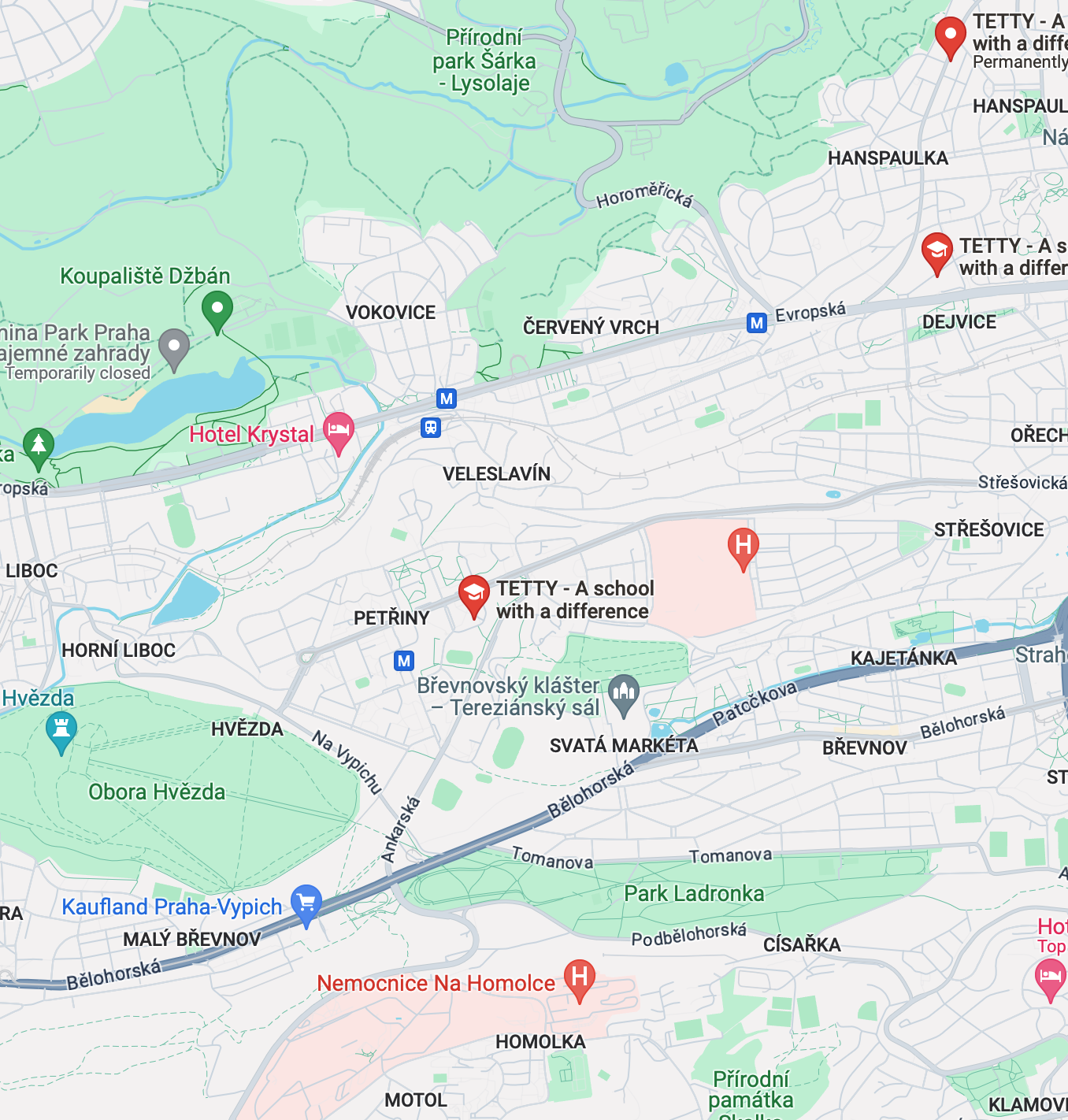
 Organisation of the school year
Organisation of the school year  download
download Šantrochova 3, Praha 6
Šantrochova 3, Praha 6 +420 733 723 306
+420 733 723 306 info@tetty.cz
info@tetty.cz  Po–Pá 8.00–17.00
Po–Pá 8.00–17.00